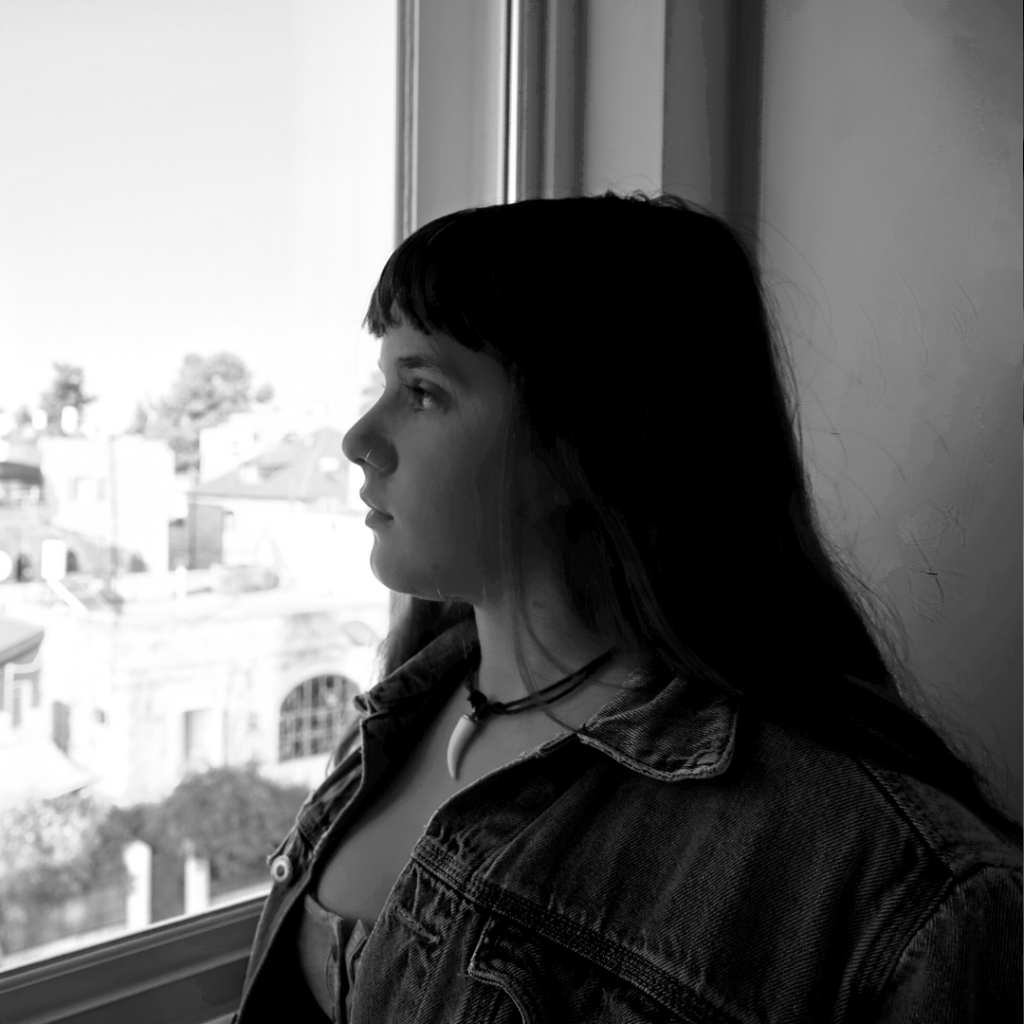
“I’ve found a balance and difference between understanding the other side and agreeing with the other side. That’s the thing—many people are scared to understand what the other side is saying because they think that means they need to agree, but to be able to see beyond that, is what is important.”
- Maya – Jewish-Israeli participant, 15 years old
I live in Baka, a neighborhood south of the Old City in Jerusalem. It’s a pretty Anglo, Orthodox, religious area. My family is not typical—I think it’s pretty uncommon for the conflict or peace issues to be brought up at the dinner table in other homes. I like that in our family, we discuss together and build an ideology as a family from these different perspectives because my father fought in the Israeli army and my mother has worked for various social organizations, so it is natural to talk about it. My mind is not set on one way of thinking… I feel I am pretty open-minded.
When I started at K4P I thought I was ready to go, to talk about the politics and everything. But I suddenly understood, everything was going really slow because we had the barrier of language, and I finally saw we had no way to communicate because they couldn’t speak Hebrew, we couldn’t speak Arabic, and no one could speak English that well. So very quickly it became divided and we separated into groups of Jewish kids and Palestinians.
At first this was really frustrating. I felt we were not talking about anything serious, everything was just under the surface, being careful and no one wanted to offend anyone. I was very critical about the program at that point, because everyone was just trying to make it seem like it was peacemaking, but I knew the conflict was all still hidden. Then I realized, some kids were not ready and not willing to talk about it. They weren’t aware enough, or they just couldn’t face it yet.
Our first political discussion that really made a strong impact happened years after we first met—it takes that long to really bond, and even then, not everyone spoke. We started talking about Jerusalem, and what it meant to all of us, and it was during the time that there were terrorist attacks in the city. We need to expand to open communities, deeper into the left-wing Jewish communities and the open-minded Palestinians who want peace, and then beyond both of them.
A few years ago I was talking about serving in the army, and instead of just getting defensive and telling me I shouldn’t join, a few of the Palestinian girls started asking me questions. I got to tell them about different jobs in the army, and have a conversation for the first time.
But I want to say, having these conversations has not made me all, tippy-toe, and peace-y, and not necessarily made me more liberal or less, they didn’t make me convinced of everything on their side— but it makes me research these issues. Sometimes the experience has actually made me pro-Israeli and made me want to defend myself with even more heart, but on some topics, it’s the other way. I’ve found a balance and difference between understanding the other side and agreeing with the other side. That’s the thing—many people are scared to understand what the other side is saying because they think that means they need to agree, but to be able to see beyond that, is what is important.
